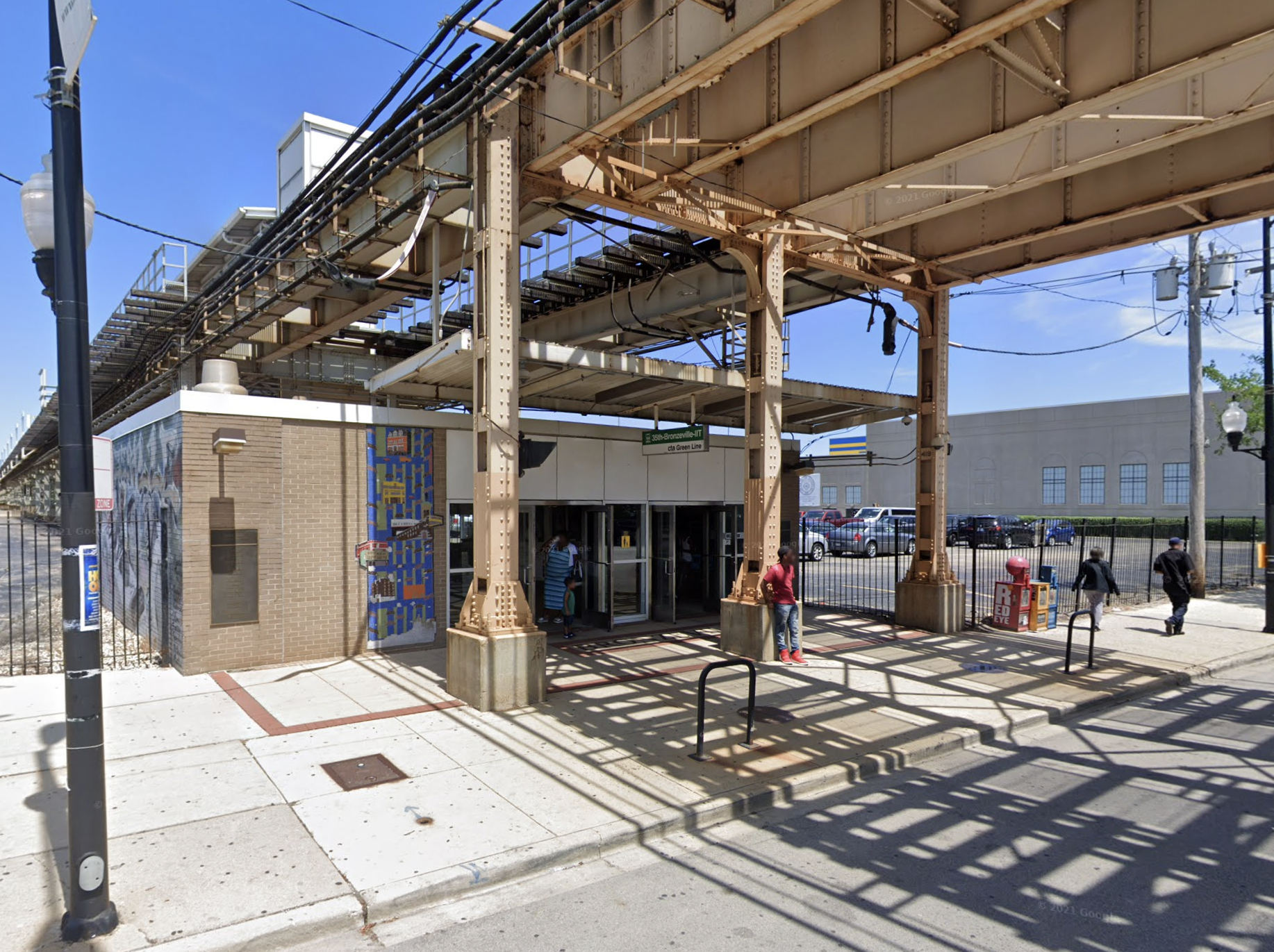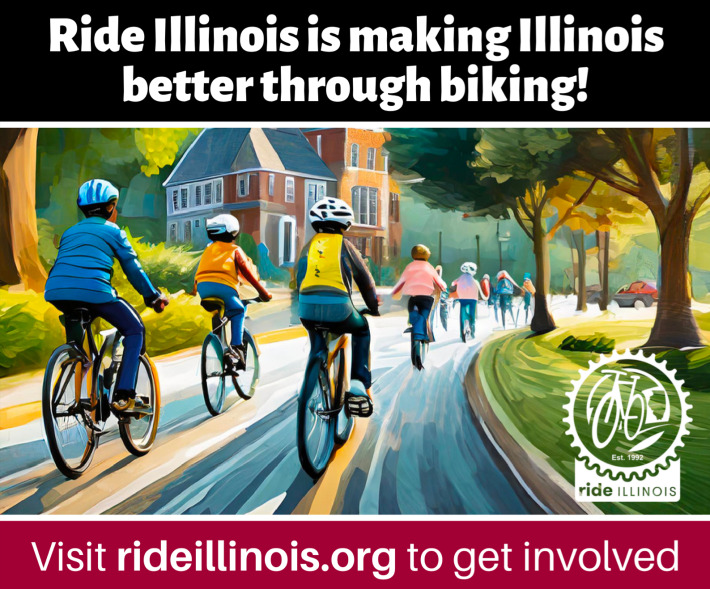
Chicago's many public transportation challenges call for regular events where officials and residents can brainstorm solutions. There have already been a few of these so far this year.
In March, the Active Transportation Alliance organized the Transit is Essential Town Hall at Mount Carmel Baptist Church in the Douglas community area on the Near South Side. In April, The People's Lobby hosted another Public Transportation Town Hall at the Logan Square Public Library on the Near Northwest Side.
And last Saturday, June 1, The People's Lobby held another transit town hall at Hartzell Memorial United Methodist Church, 3330 S. King Dr. in Douglas, drawing an impressive turnout of politicians and advocates. Topics covered included the lack of good service in many local communities of color; unreliable buses and trains citywide; the lack of sufficient connections between the city and the suburbs; and Chicagoland transit's looming $730 million fiscal cliff.
We had a great time at @peopleslobbyusa Southside Transit Town hall in support of the Clean and Equitable Transportation Act! #transitisessential #twill pic.twitter.com/DB3rYGT2r6
— Sierra Club Chicago (@SierraChicago) June 1, 2024
Among The People's Lobby representatives who spoke was Environmental Justice Policy Manager Nika Lofton. "Chicago is a world-class city, and we should have a world-class transportation system that runs on clean energy, is safe, reliable, fast, efficient, free, and takes everyone where they need to go," she said. Lofton also talked about how, with the rise of the automobile, public transportation in Chicago started to become disenfranchised, especially once it stopped being profitable for privately owned streetcar businesses.

"Our city and eventually the state government saw that there was a public good in transit, in how many people relied on it, and decided to take control of public transit to keep everybody moving, not just those that bought cars," Lofton added. "However, the private disinvestment, the lack of public funds, and the political fights meant that the public transportation system is deprioritized and underfunded, and it has remained that way for decades."
The panel of elected officials concerned with transit at the event included State Representative Kam Buckner (D-26th), who has introduced several bills designed to improve transportation in the Chicago region. "What I'll just say about a transit system that works for the people is that it's a system that's irresistible," he said. "I mean, the system where it makes way more sense for you to get on the Green Line, or the Jeffery Jump than it does to get in a car or call an Uber. This is, to me, not just about buses and trains. This is about mobility, and mobility is a human right."
"I remind folks that mobility is a civil rights issue," Buckner added. "I remind folks that the modern-day civil rights movement started from the front of a public bus in Montgomery, Alabama. And we have to remember that when we demand a system that's clean, efficient, and accountable. The real goal is to get as many people to as many places as quickly and as safely as possible."
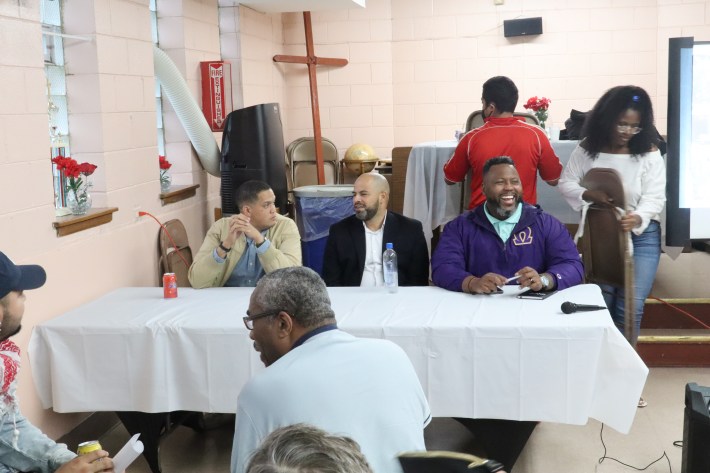
The next elected official was Ald. Andre Vasquez (40th), who chairs the Chicago City Council's transportation committee. He has led the campaign to replace CTA President Dorval Carter, is currently advocating for creating a bus rapid transit corridor on Western Avenue.
"What does an ideal [transit] system look like?" Vasquez said. "I have a two-second answer - not like this. What should it look like? I think it is one absolutely where people are centered. What we know is that if you're trying to get a job, you want to make sure you can get to work on time. If you've got these buses you're depending on, your job is on the line."
"What you get when it's a majority-Black workforce, that they're worried about their safety and their rights and being invested in, that's a problem," Vasquez added. "We need a system where people can file complaints and hold accountable people."
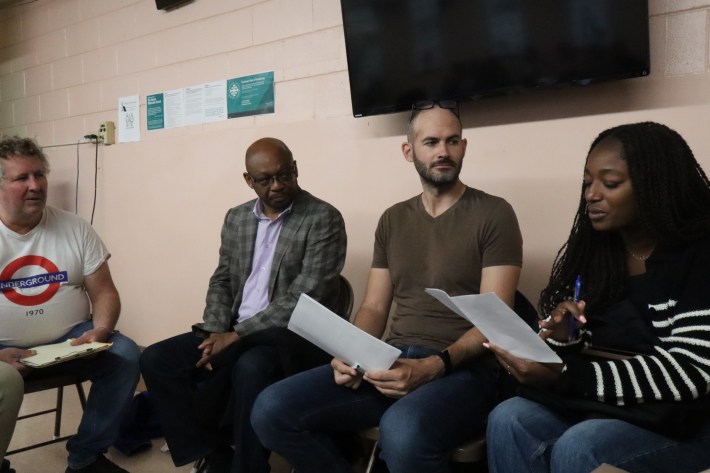
State Senator Robert Peters (D-13th), who previously served as an organizer for the The People's Lobby, said it felt "great to be back in a church basement." He also participated in the Active Transportation Alliance's Transit is Essential event.
"A world-class transportation system will tear down the legacy of Old Man Daley highways," said Peters, referring to Chicago neighborhoods destroyed and divided by expressways built under longtime Chicago Mayor Richard J. Daley. "It literally breaks the barriers of the walls of segregation. And so, to me, it's not just the fact that it gets us from one place to another easier, but it gets us to each other and connects us."
"A world-class transportation system connects the city and connects you to every part of what makes a city great," Peters added. "And whether you're a Cubs fan on the South Side or a Sox fan on the North Side, we know that when you take the Red Line, it's going to be good, it's going to feel good, safe, comfortable, it's going to be there."
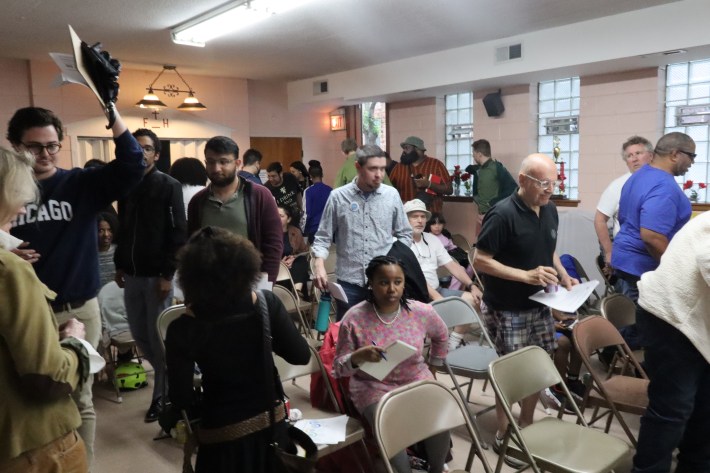
About midway through the meeting, attendees broke into six smaller groups to determine a question to ask the elected officials. The questions fell into three broad categories. One was about revenue, how to deal with the upcoming budget shortfall, and how to get more federal funding. The second was about how to better connect the system. The third was about the elected officials themselves, how to hold them accountable, and how they can help change the system.
Each panelist was allowed to address as many questions as they wanted. Among other things, Peters talked about funding, specifically about the upcoming presidential election. "We already had a tough budget this year," he "We're going to face an even tougher budget next year, and it becomes even harder if we don't have people who cooperate with us in DC."
"So honestly, being creative in whatever we can do to find that funding is gonna be important," Peters added. "Both if Biden gets reelected, but also, especially if Trump ends up winning... It keeps me up at night all the time thinking about this."
Attendee Jessie Steckling thought the meeting was productive, and appreciated the breakout groups, and the ability to talk to elected officials. However, she added, "I'd love to see some mention of some specific legislation. The legislators and the people are all really energized. But planning what specific legislative action we're going to take would be really good."

Did you appreciate this post? Please consider making a tax-deductible donation.
